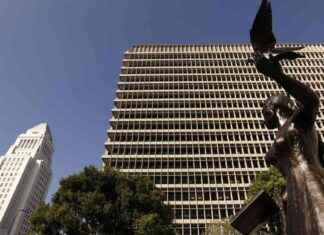Actually, the winner of the Eurovision Song Contest always organizes the competition in the following year. Actually. After Ukraine’s victory this year, this golden rule has to be broken for the first time in over four decades. Great Britain is now stepping in.
Thanks to the votes of the viewers, Ukraine celebrated a phenomenal victory at this year’s Eurovision Song Contest (ESC) in Turin. The triumph of the formation Kalush Orchestra with their song “Stefania” was above all an impressive sign of solidarity with the war-torn country.
But the symbolic decision also brought with it a tangible problem: where should the ESC take place next year? With few exceptions, it has been a tradition since 1958 for the winner to hold the competition the following year. This rule was last deviated from in 1980, when the ESC took place in The Hague in the Netherlands, although Israel had conquered the singing crown the year before.
At that time, however, security concerns were not the reason why Israel voluntarily decided not to host the event. Rather, it was about the money. Israel won the ESC 1979 for the second time in a row – in front of a home crowd in Jerusalem. However, the country was unable to financially support the event again immediately afterwards.
In the case of Ukraine, of course, the threat situation plays the decisive role. After all, nobody can currently predict whether the fighting in the country will be over in the coming year. However, holding the ESC in a war zone is unimaginable.
Ukraine recently emphasized demonstratively that, despite the circumstances, it is planning to host the event in its own country. But after the ESC is before the ESC. And so the preparations for next year’s event will soon begin again. As time is of the essence, a final decision has now been made. And that is: The ESC 2023 will take place in Great Britain. So in the country whose representative Sam Ryder got hold of second place with “Space Man” in Turin.
This was announced by the European Broadcasting Union (EBU) as the organizer and the BBC as the organizer of the contest next year. However, the Ukrainian broadcaster UA:PBC was also involved in the decision and finally agreed to move the event to Great Britain, it is said.
“We are extremely grateful that the BBC has agreed to hold the Eurovision Song Contest 2023 in Great Britain,” said EBU ESC boss Martin Österdahl, relieved. It should also be ensured that Ukraine is appropriately celebrated and honored during the event.
“The Eurovision Song Contest 2023 will not be held in Ukraine, but in solidarity with her,” explains UA:PBC’s Mykola Chernotytskyi. “I am confident that together we can bring the Ukrainian spirit to the event and once again unite all of Europe around our common values: peace, mutual support and the joy of diversity and talent,” he adds.
On behalf of the BBC, Tim Davie expressed his regret that his colleagues from Ukraine would not be able to hold the competition in their own country. However, being asked to “host the largest, most lavish music competition in the world” is “a great privilege,” he adds. In cooperation with representatives of UA:PBC, a joint concept for the show should now be developed.
In addition to the so-called “Big Five” – ??Germany, France, Great Britain, Italy and Spain – Ukraine, as last year’s winner, is also set for the ESC final, it is said. However, it is not yet clear in which British city the event will ultimately take place. Potential venues can now apply. The decision will be made in the coming months.






